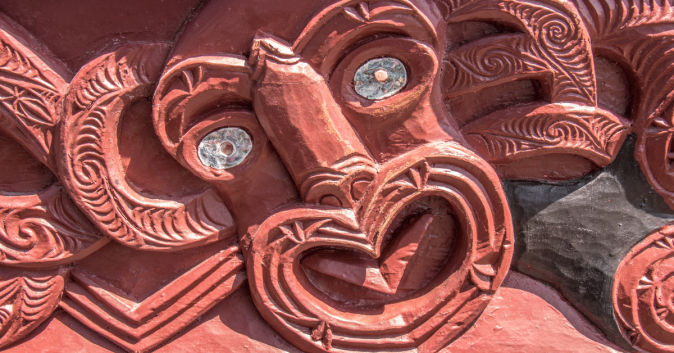Taking your first step onto a marae in New Zealand - and knowing what to expect

There are many opportunities to experience Māori culture in New Zealand and there is nothing better than having the opportunity to stay in a marae (sacred meeting place for Māori). When learning about our rich indigenous culture it’s important to start at the beginning. We know the best way to learn about culture is to experience it first hand.
We have put together a quick guide to familiarise you with key concepts and protocol to get you prepared for your first stay on or visit to a marae.
Let’s start with a bit of history
Māori are New Zealand’s indigenous peoples. The Māori people are expert navigators who travelled from lands in the pacific over one thousand years ago. Māori were the first inhabitants of Aotearoa (the land of the long white cloud).
To learn about what makes us unique as New Zealanders it is important to take opportunities to learn about and experience our indigenous Māori culture. There is nothing that compares to it in the world. Our indigenous peoples are still striving to gain an equal footing in society post-colonisation. These facts make it paramount that as you walk your path towards employment in Aotearoa you understand, respect, and take on a living knowledge of the important role Māori people have as the first people of this land. Māori practices and beliefs have a pivotal role in our society at every level including the modern workplace.
You can learn more about this here

Embrace the experience
A special way to experience Māori culture and worldview is to visit and stay a night or two on a marae (sacred meeting place). This will give you an in-depth understanding of how Māori lived and how today’s Māori live in and experience the world around them. The on-marae experience will allow you to; see the traditional buildings which often feature intricate carvings, as well as learn elements of Te Reo Māori (the Māori language), Tikanga Māori (Māori customs) and kawa (localised rituals and customs). You will meet the iwi (tribe) and hapu(subtribe) and or/whānau (family) that the marae connects to. You will also be part of a traditional welcome (powhiri).
There are many marae all over Aotearoa New Zealand that connect to our various iwi, hapu and whānau groups.
Here is a quick overview of what you can expect as you enter the marae.
We highly recommend that you take the opportunity to connect with your local hapu representatives who will educate you on the local protocols and guide you through this process.
The process
- When you first stand at the entrance way or gate you will be facing a building called the wharenui (meeting house) and the local people (tangata whenua) will call to your group (karanga) to come on to their marae and into the meeting house.
- If possible, a Māori woman (kaikaranga) will lead you on to the grounds and respond to the call of the home people.
- The women will go on to the marae first followed by the men.
- When you get to the meeting house you will stop at the doorway and remove your shoes. Once inside there will be karakia (prayers) and welcoming mihi (speeches) and waiata (songs). Men by custom lead the mihi (speeches) and in some cases, women speaking on some marae but this is up to the local iwi to decide.
- You will then greet the local members of the tribe with a traditional hongi (touching of noses) or a kiss on the cheek.
- You will then be invited to the wharekai (dining hall).
- After karakia (prayer), you will eat food and talk with the host people.
Etiquette Tips
- You may not eat, drink, or smoke in the meeting house. Please do not take photos or videos unless consent was given beforehand.
- Please do not sit on any pillows while you are at a marae.
- It is important that you do not sit on any tables.
- Sometimes, depending on local custom it is a requirement to wash your face and hands after being in the marae (meeting house) and before you eat (this symbolises the change from sacred (tapu) to non-sacred (noa).
- It is preferable to dress modestly for the marae visit. For women, it is respectable to wear a dress or a skirt that is longer than your knees.
- It depends on the kawa (custom) of the hosting iwi whether you are farewelled formally (poroporoaki) or informally.
- It is etiquette to give a koha (gift) of money in an envelope. Often this is organised by the group beforehand and given during the marae (meeting house) ceremony.
Take as many opportunities as possible to live as one with our local people. You will always be welcome. Nau mai, haere mai.


